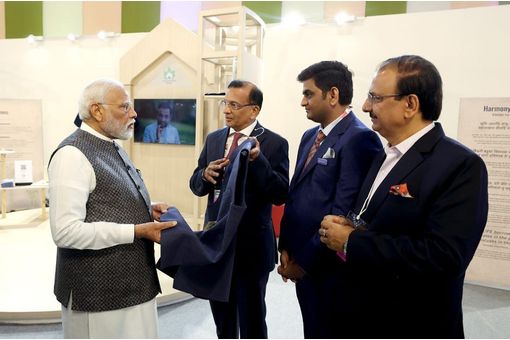Interviews
Buyer stance linked to perceived environmental impact: ING
11 Feb '20
2 min read

Pic: ING
Consumer attitudes have reached a tipping point, leading them to avoid brands that don’t prioritise sustainability and environmental issues, says a new report by global financial institution ING. Despite demanding change, customers will still prefer the linear ‘convenience economy’ model of ‘take, make and waste’ unless a more seamless transition towards circular economy is offered.
Faced with potential damage to profitability, businesses must offer more convenient sustainable options to consumers in order to create meaningful engagement with the circular principles of ‘reduce, reuse and recycle’, the report, titled ‘Learning from consumers: How shifting demands are shaping companies’ circular economy transition’, said.
The majority of respondents believe their behaviour and choices can have a positive impact on addressing global environmental challenges (83 per cent). Furthermore, 61 per cent say they would be less willing to buy a company’s product if they discovered it was performing poorly on environmental practices.
The report notes the potentially vast gains for businesses that embrace the ‘reduce, reuse, recycle' principles of the circular economy by aligning with consumers’ changing demands.
To better capture the opportunity of the circular economy and engage with these customers, companies must first understand the barriers to widespread consumer adoption. The barriers include cost, awareness and education, empowerment and reassurance, and circular infrastructure and convenience, an ING press release said citing the report.
The top reason for not repairing clothes is consumers’ belief that, to do so, they need skills they don’t have, with 48 per cent having this sentiment. Engagement with more novel circular practices is being held back by the perceived effort required: 41 per cent think renting clothes would require a lot more effort, and 36 per cent say time is a barrier to repairing devices.
More than half (54 per cent) of consumers still choose low-cost, fast-fashion items over more expensive, more durable ones.
For companies to address these barriers for all of their customers they need a deeper understanding of consumer motivation. ING’s analysis identified three broad groups: ‘Circular Champions’, ‘Circular Sympathizers’, and ‘Non-engagers’. The report identifies within each industry sector the different buying decisions, behaviours and motivations of each group in embracing—or not—circular economy practices.
Faced with potential damage to profitability, businesses must offer more convenient sustainable options to consumers in order to create meaningful engagement with the circular principles of ‘reduce, reuse and recycle’, the report, titled ‘Learning from consumers: How shifting demands are shaping companies’ circular economy transition’, said.
The majority of respondents believe their behaviour and choices can have a positive impact on addressing global environmental challenges (83 per cent). Furthermore, 61 per cent say they would be less willing to buy a company’s product if they discovered it was performing poorly on environmental practices.
The report notes the potentially vast gains for businesses that embrace the ‘reduce, reuse, recycle' principles of the circular economy by aligning with consumers’ changing demands.
To better capture the opportunity of the circular economy and engage with these customers, companies must first understand the barriers to widespread consumer adoption. The barriers include cost, awareness and education, empowerment and reassurance, and circular infrastructure and convenience, an ING press release said citing the report.
The top reason for not repairing clothes is consumers’ belief that, to do so, they need skills they don’t have, with 48 per cent having this sentiment. Engagement with more novel circular practices is being held back by the perceived effort required: 41 per cent think renting clothes would require a lot more effort, and 36 per cent say time is a barrier to repairing devices.
More than half (54 per cent) of consumers still choose low-cost, fast-fashion items over more expensive, more durable ones.
For companies to address these barriers for all of their customers they need a deeper understanding of consumer motivation. ING’s analysis identified three broad groups: ‘Circular Champions’, ‘Circular Sympathizers’, and ‘Non-engagers’. The report identifies within each industry sector the different buying decisions, behaviours and motivations of each group in embracing—or not—circular economy practices.
Fibre2Fashion News Desk (DS)
Popular News
Leave your Comments
Editor’s Pick
Kimberly Morgan and Rik Veltman
K3 Business Technology Group PLC
Andrea pompilio
Label - Andrea pompilio
































-Ltd..jpg?tr=w-120,h-60,c-at_max,cm-pad_resize,bg-ffffff)





.jpg?tr=w-120,h-60,c-at_max,cm-pad_resize,bg-ffffff)
.jpg?tr=w-120,h-60,c-at_max,cm-pad_resize,bg-ffffff)






